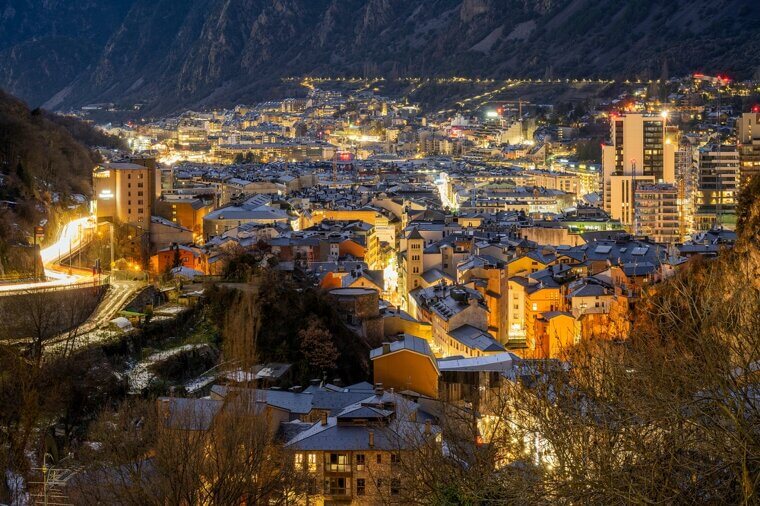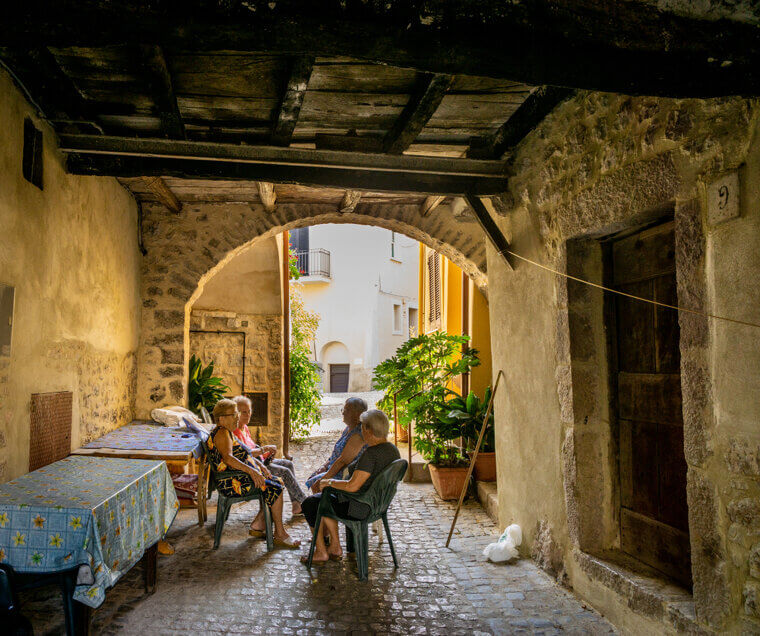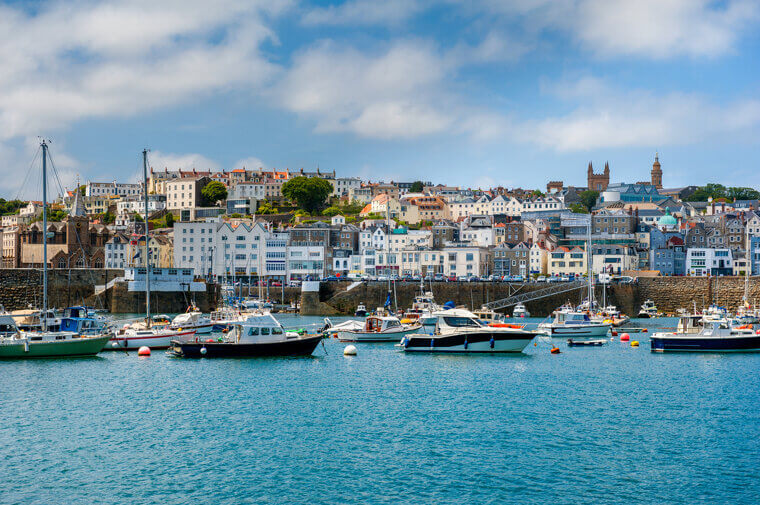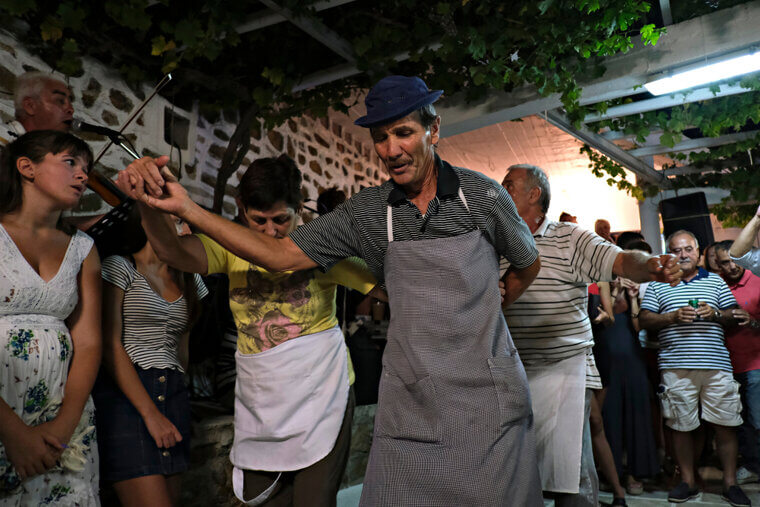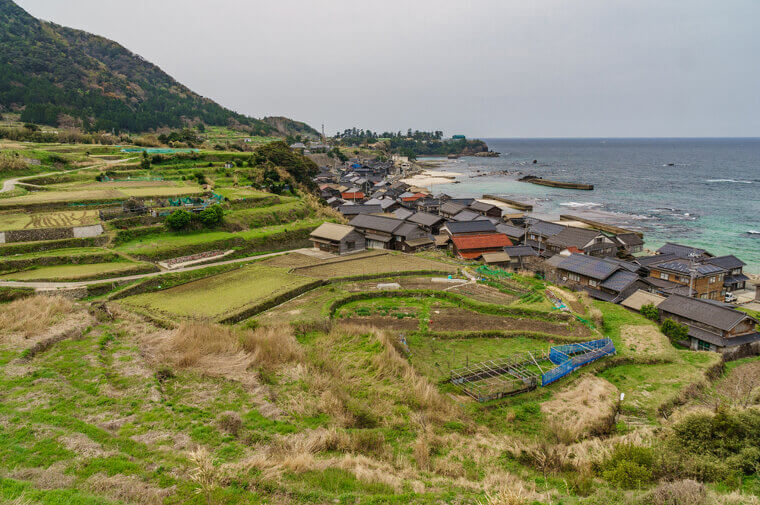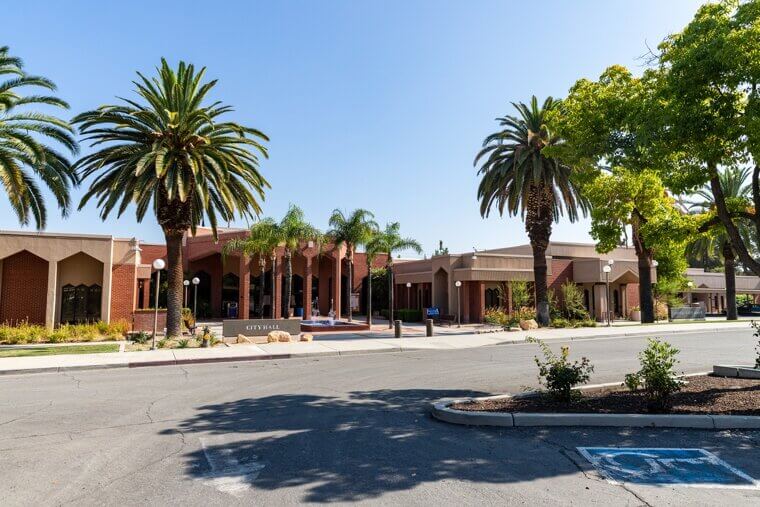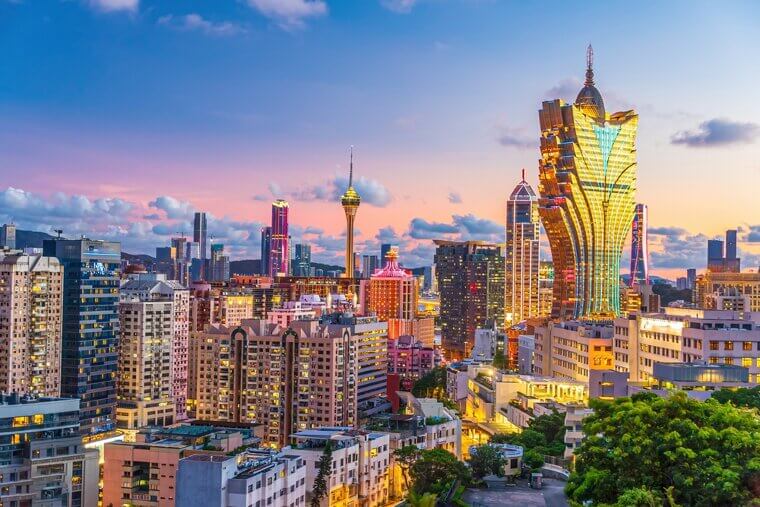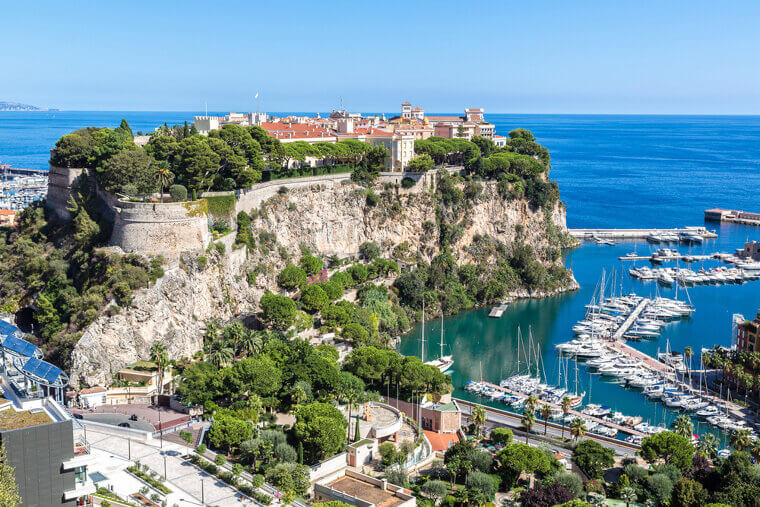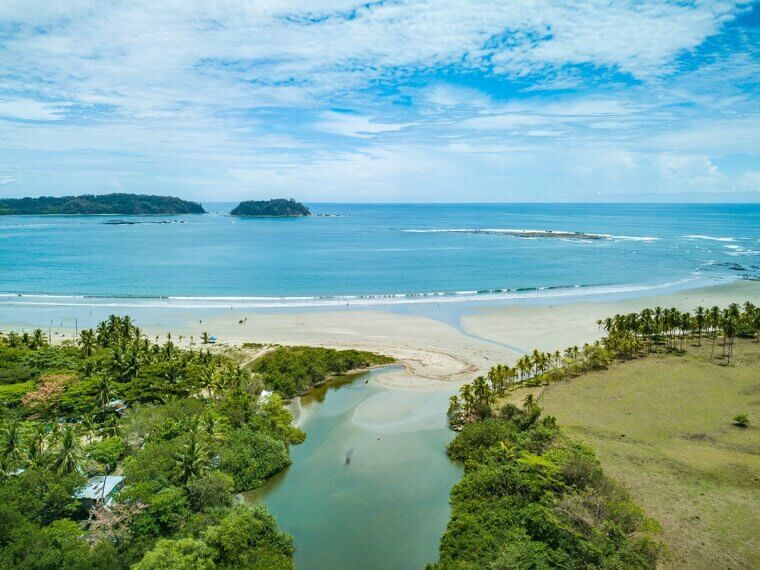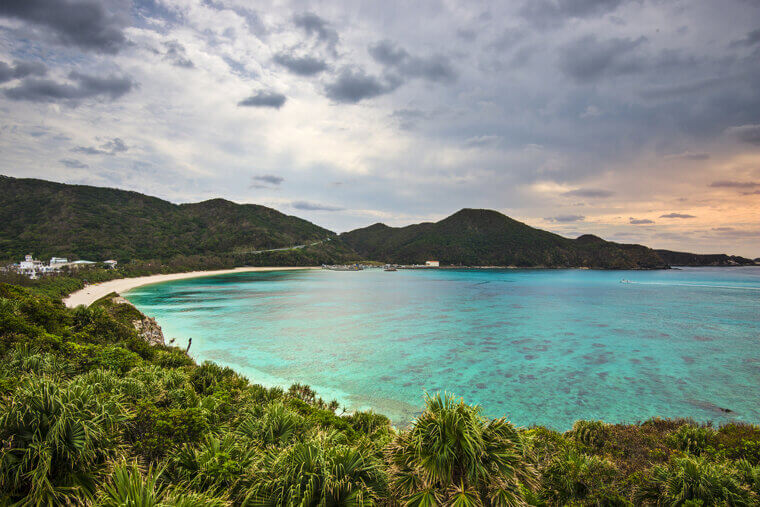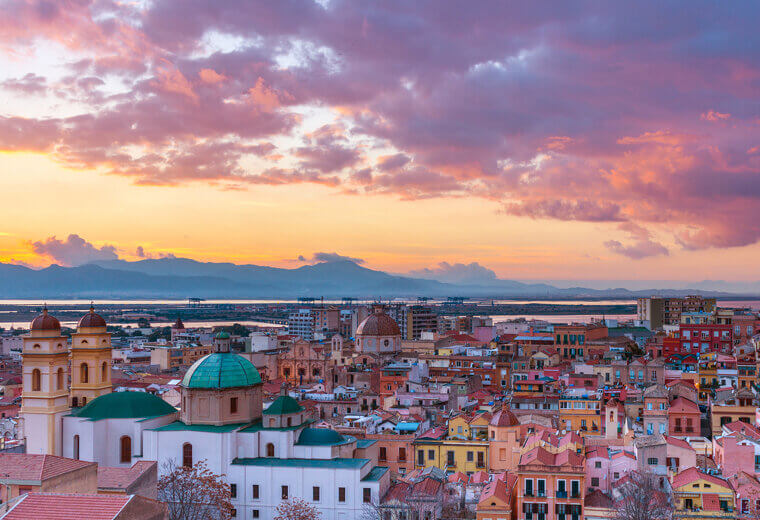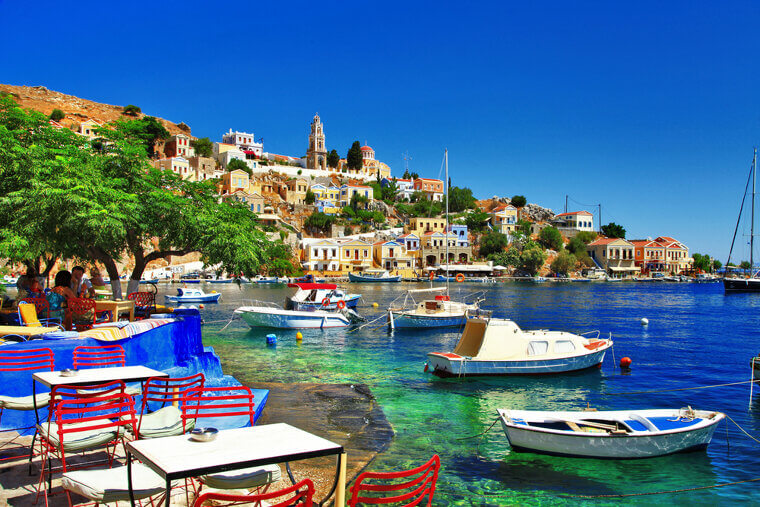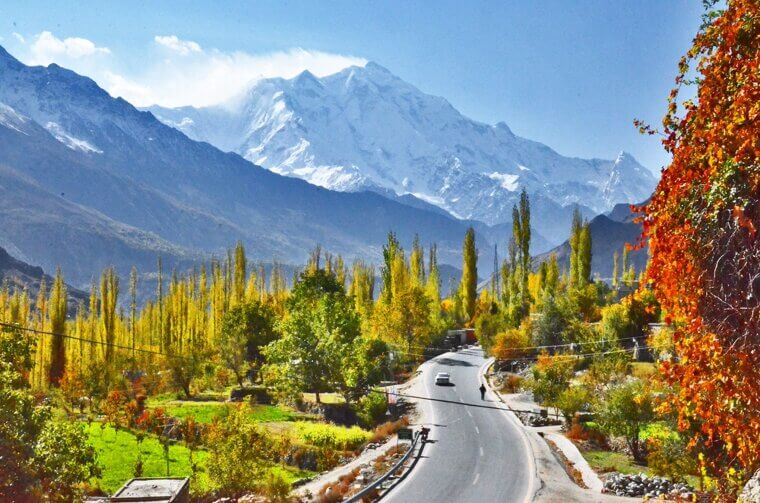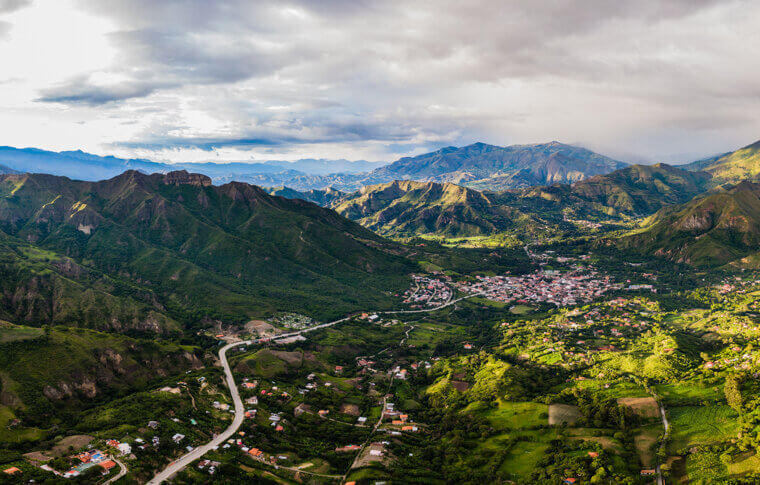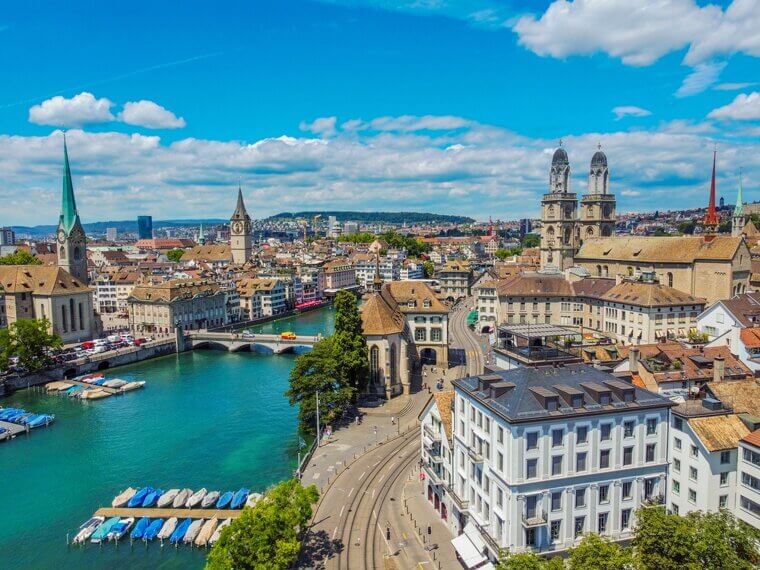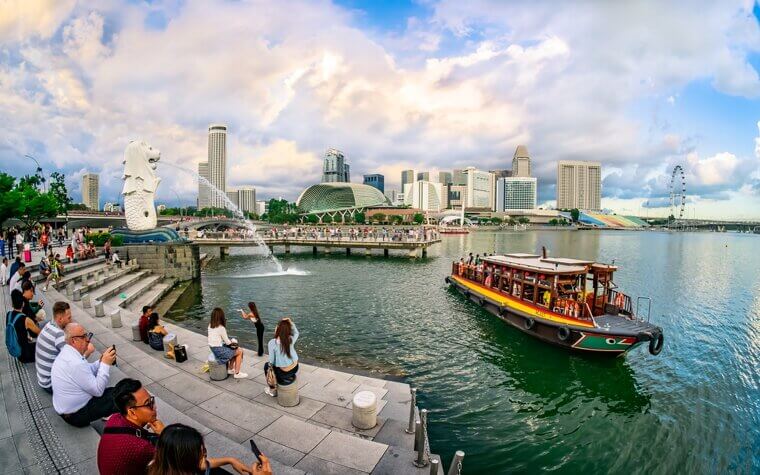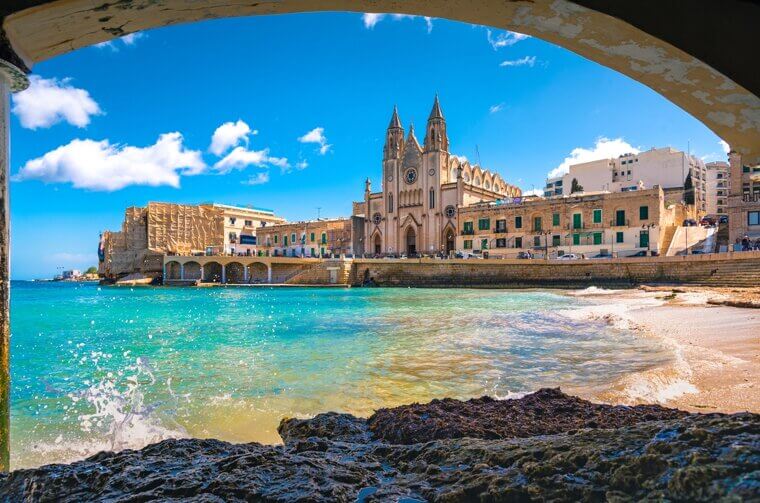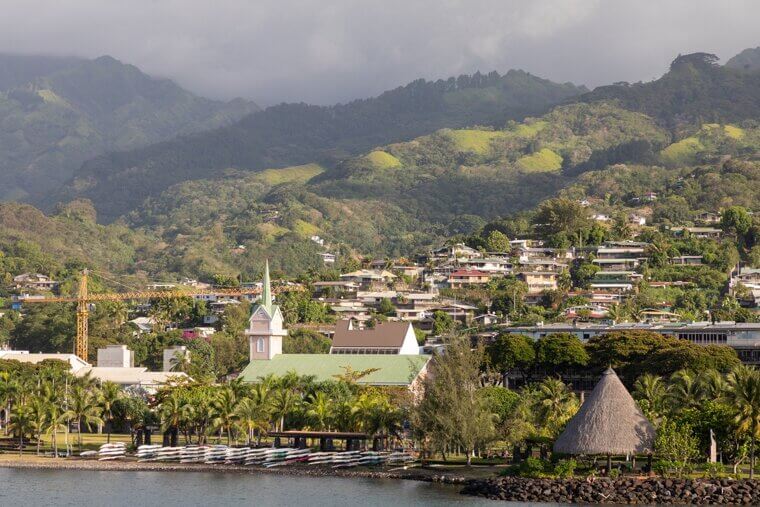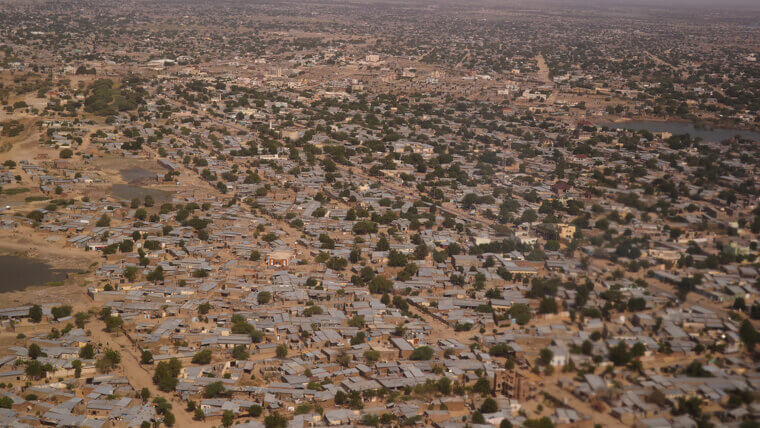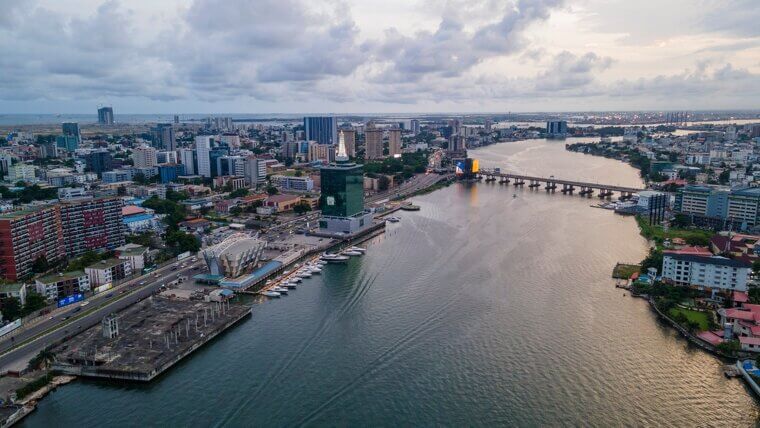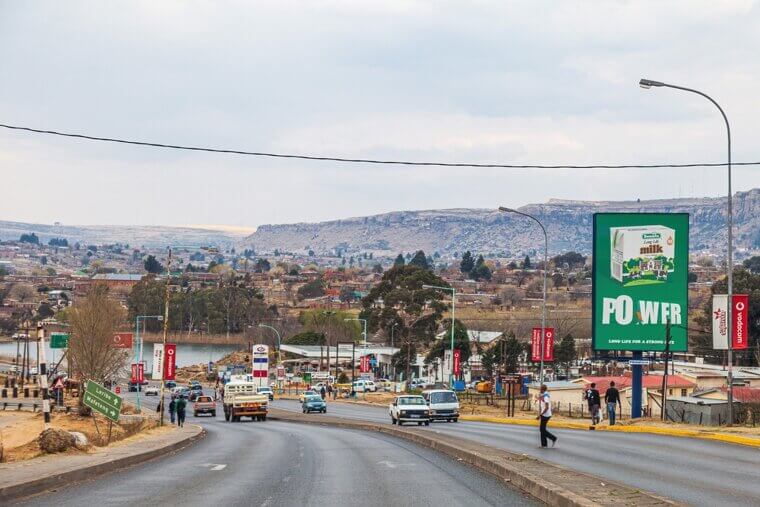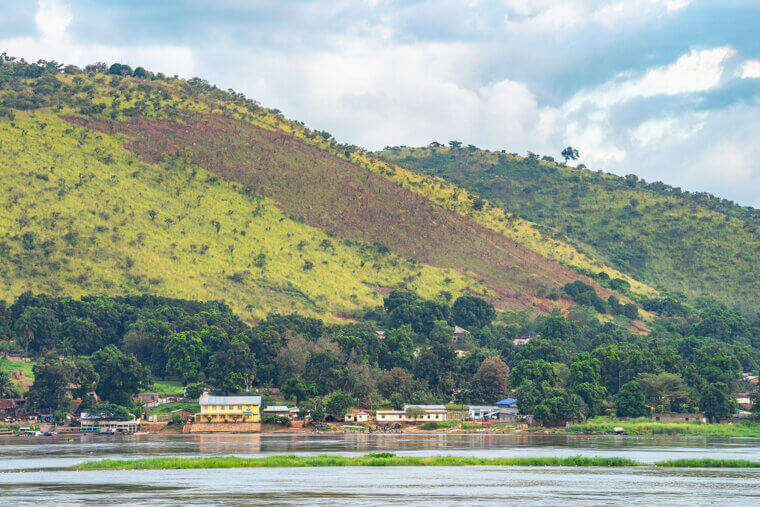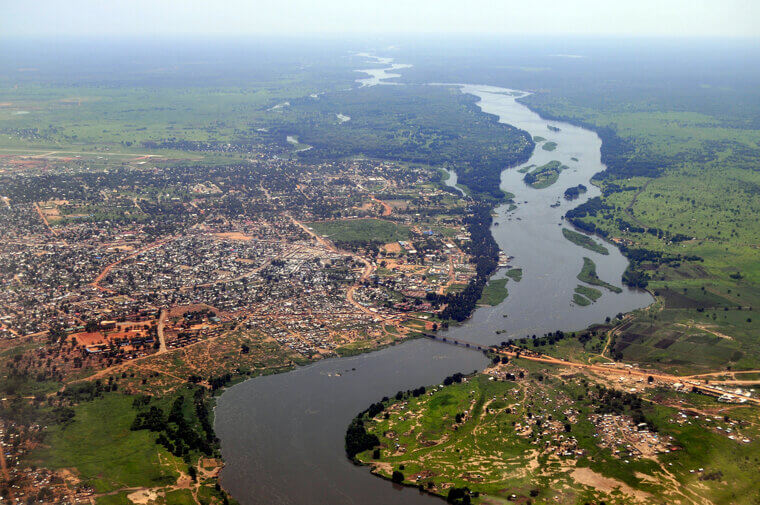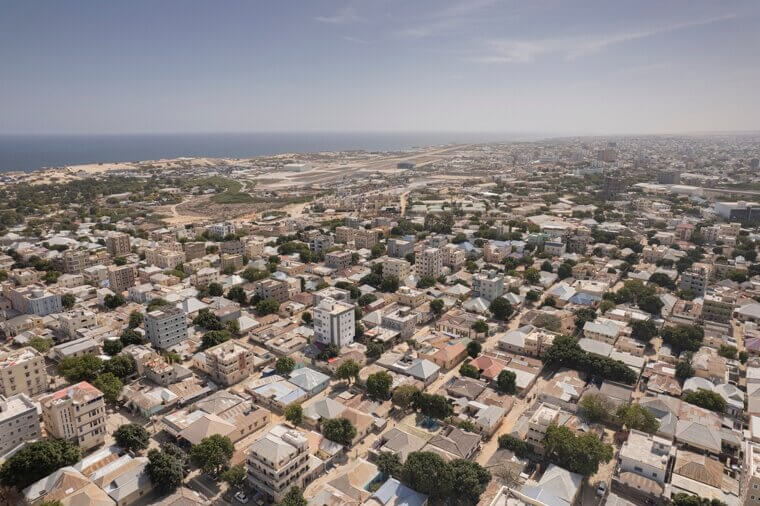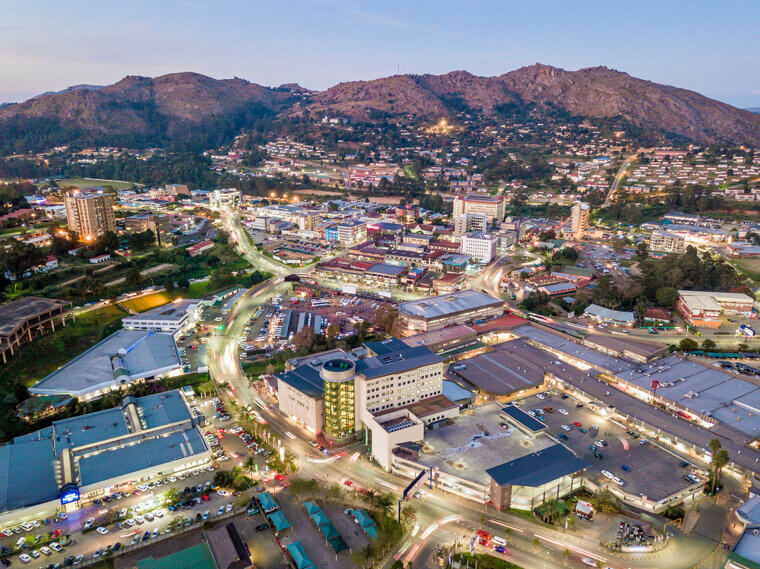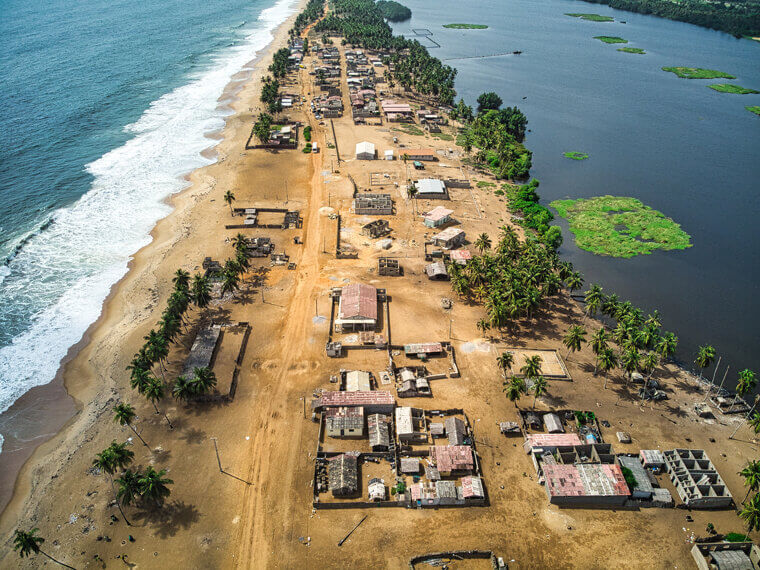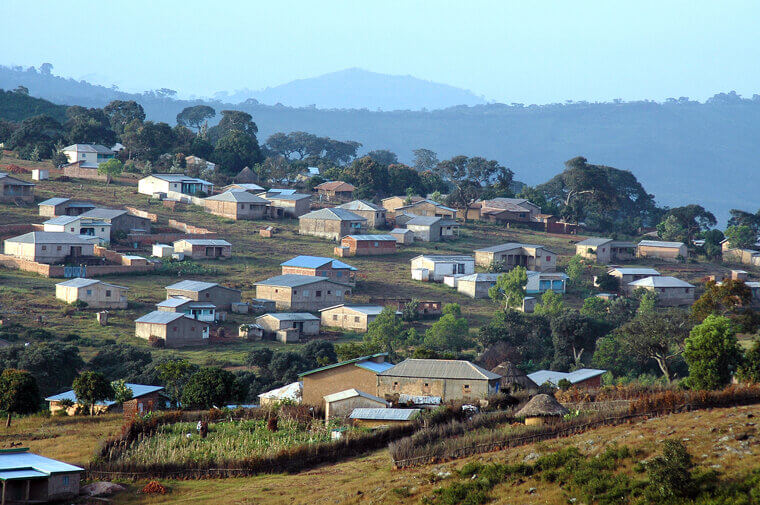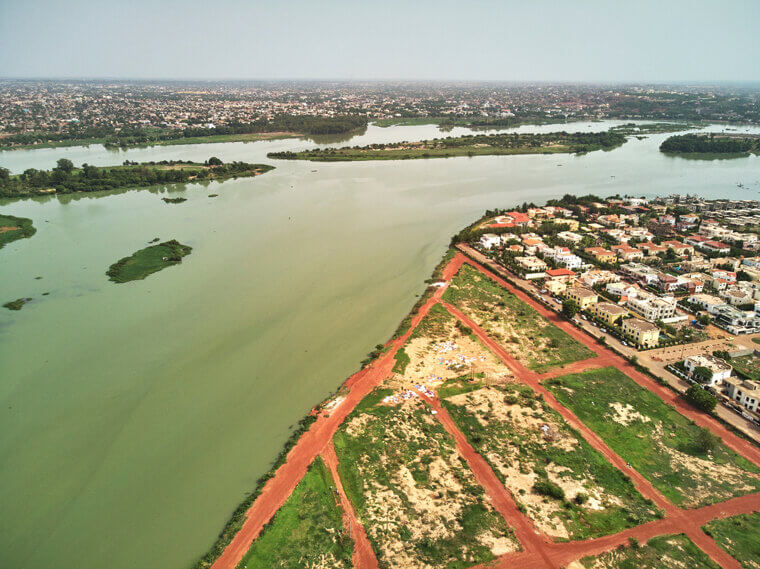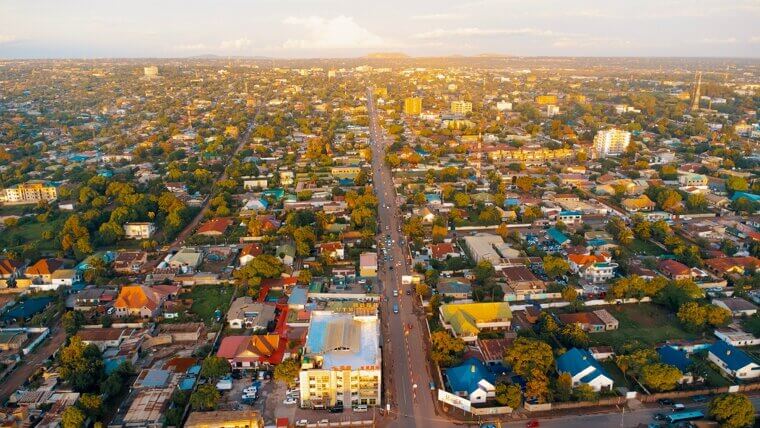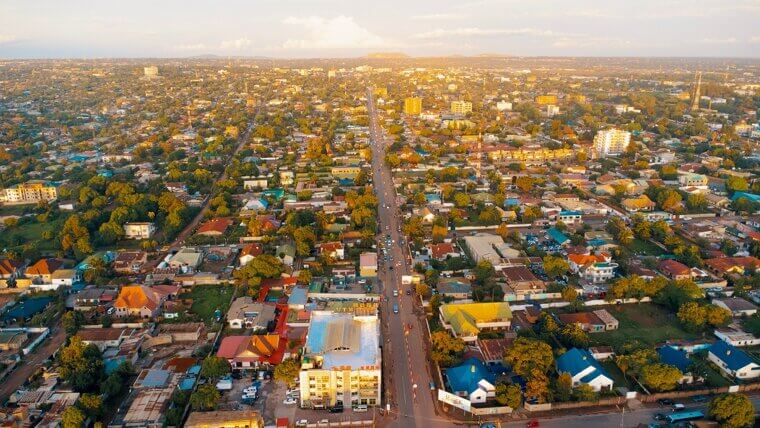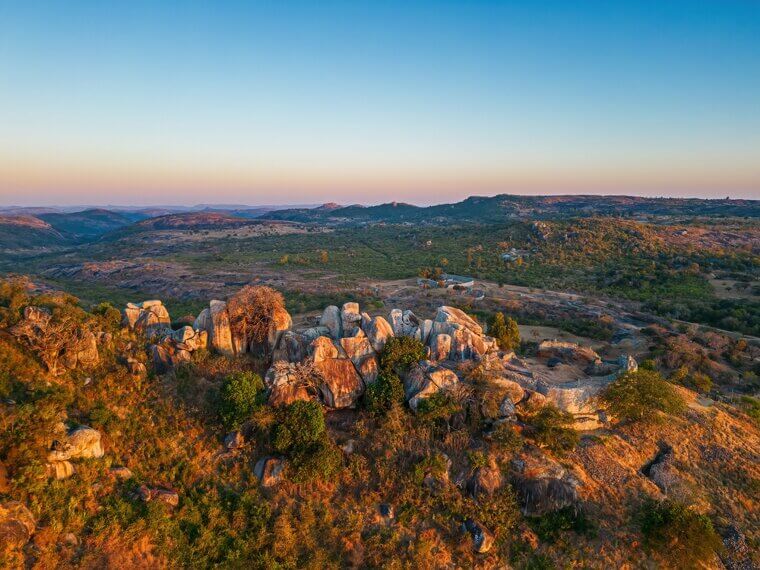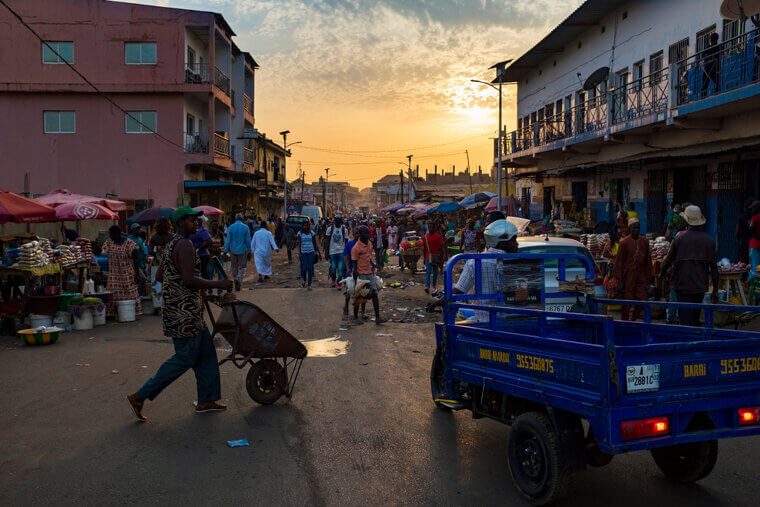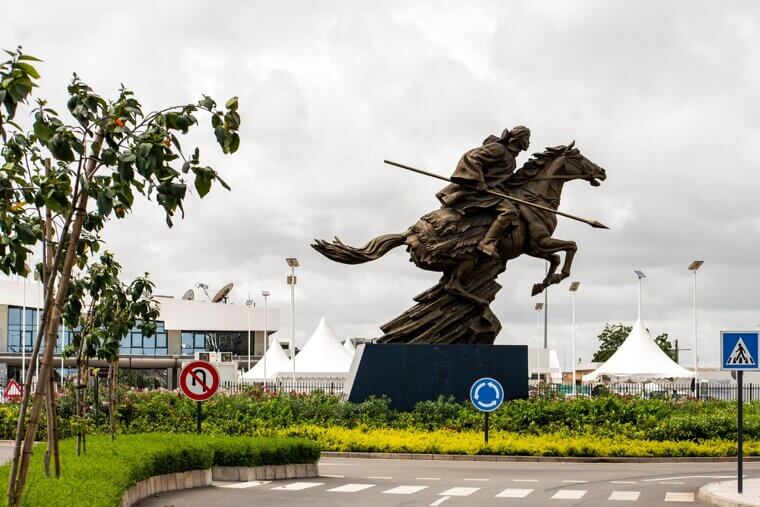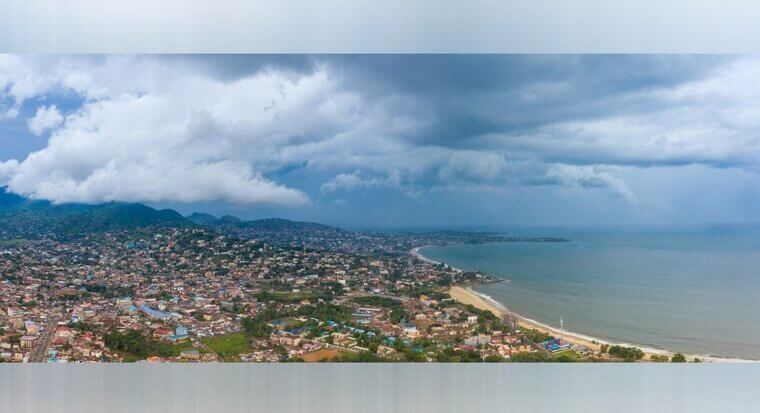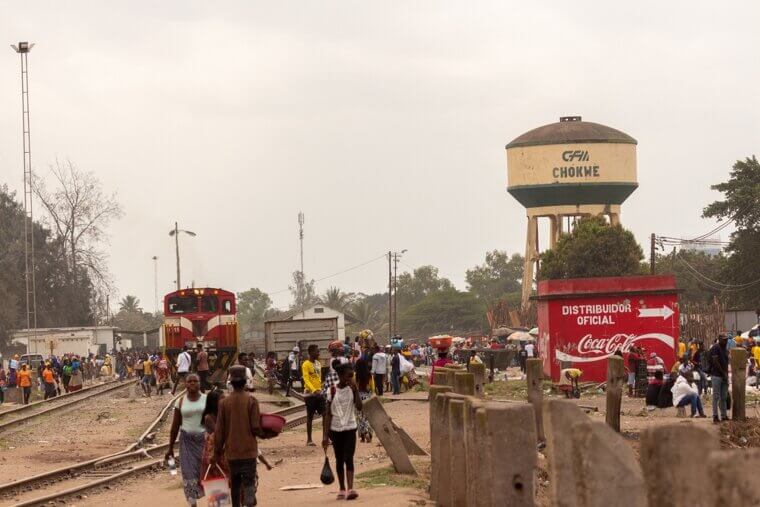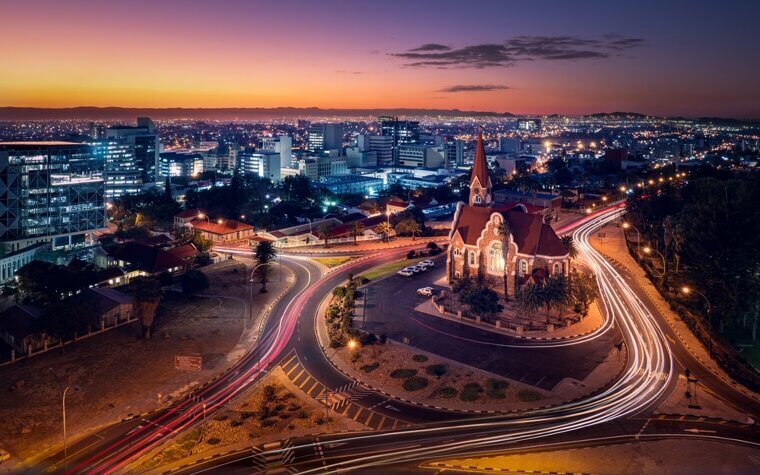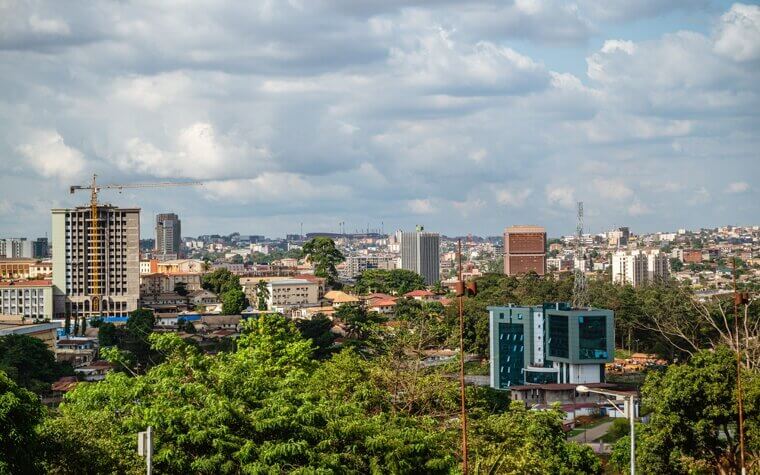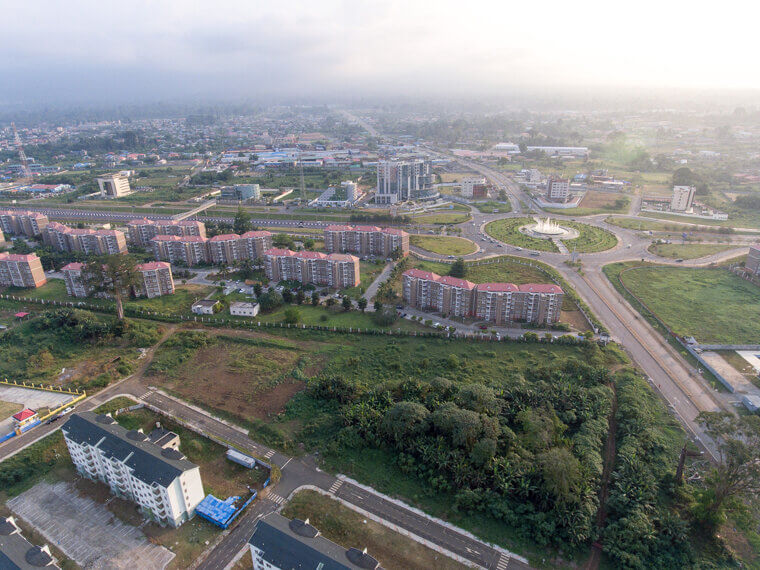Andorra - 82.8 Years
Nestled in the Pyrenees Mountains between France and Spain, Andorra boasts one of the highest life expectancies in the world standing at 82.8 years old. The secret? Fresh mountain air, a robust healthcare system, and a diet rich in fresh, local produce. Andorrans enjoy an active lifestyle with plenty of outdoor activities like hiking and skiing. The strong sense of community and low crime rate also contribute to stress-free living. Plus, Andorra’s residents benefit from a high standard of living and excellent social services, ensuring a well-balanced life.
With such a perfect combination of natural beauty and quality healthcare, it's no wonder Andorrans live long, fulfilling lives.
Campodimele, Italy - 95 Years
Dubbed the "Village of Eternal Youth," Campodimele in Italy is famed for its residents’ extraordinarily long life spans which on average are 95 years. This picturesque village in the Lazio region is home to a diet rich in olive oil, fresh vegetables, and homemade pasta, contributing to their heart health and vitality. The locals lead a peaceful, slow-paced lifestyle with a strong sense of community and family. Regular physical activity, whether through farming or daily walks in the scenic countryside, keeps them fit and healthy.
The pristine environment, coupled with a low-stress lifestyle, makes Campodimele a true fountain of youth, where time seems to stand still.
Guernsey - 81 Years
Guernsey, a gem in the English Channel, is not just a tax haven but also a haven for longevity with a life span standing at 81 years. The island’s residents enjoy a relaxed pace of life, with stunning coastal views and plenty of green spaces promoting outdoor activities. A diet rich in fresh seafood, local dairy, and organic produce boosts their health. The sense of community is strong, with low crime rates and excellent healthcare services ensuring peace of mind. The island’s mild climate also plays a role, allowing for year-round outdoor enjoyment.
With such idyllic living conditions, it’s easy to see why Guernsey’s inhabitants live long, happy lives.
Hong Kong - 84 Years
Hong Kong, a bustling metropolis, might seem an unlikely candidate for longevity, but its residents enjoy some of the longest lifespans in the world at 84 years. Access to world-class healthcare and a diet rooted in traditional Chinese cuisine, rich in vegetables, seafood, and herbal teas, contribute significantly to their health. Physical activity is integrated into daily life, from tai chi in parks to walking the city’s steep streets. Additionally, a strong cultural emphasis on family and community support provides emotional well-being.
Despite the city’s fast pace, the combination of excellent medical care, healthy eating habits, and an active lifestyle keeps Hongkongers thriving.
Ikaria, Greece - 90 Years
Ikaria, a stunning Greek island in the Aegean Sea, is renowned for its residents' remarkable longevity with the average life span standing at 90 years old. The Ikarian diet, rich in olive oil, vegetables, legumes, and fish, is a cornerstone of their long lives. They also enjoy a strong sense of community, low levels of stress, and a slow-paced lifestyle. Regular physical activity, whether through farming or walking the island’s hilly terrain, keeps them fit. The local practice of afternoon naps, or "siestas," contributes to their overall well-being.
This unique blend of healthy eating, physical activity, and stress-free living makes Ikaria a true paradise for those seeking a long, healthy life.
Kyotango, Japan - 84.5 Years
Kyotango, a coastal city in Japan’s Kyoto Prefecture, is a hotspot for longevity with a lifespan average of 84.5 years. The residents' diet, high in fresh seafood, vegetables, and seaweed, is packed with essential nutrients and antioxidants. The community’s active lifestyle, often involving daily walks and traditional physical activities, keeps them in excellent shape. Social cohesion and family ties are strong, providing emotional support and reducing stress. Additionally, the local culture emphasizes respect for elders, ensuring they remain active and integrated into society.
With its beautiful natural surroundings and a lifestyle rooted in balance and health, Kyotango is a perfect example of the secrets to a long life.
Loma Linda, California - 90 Years
Loma Linda, a small city in Southern California, is known for its residents’ exceptional longevity, largely due to its unique lifestyle. Home to a large community of Seventh-day Adventists, the city’s inhabitants follow a vegetarian diet rich in fruits, vegetables, nuts, and grains, contributing to their heart health and overall well-being. Regular exercise, abstinence from smoking and alcohol, and a strong focus on family and community support further enhance their health.
The sense of purpose derived from their faith and community engagement adds to their mental and emotional well-being. Loma Linda is a testament to the power of a healthy, purposeful lifestyle.
Macau - 81 Years
Macau, a vibrant city known for its casinos and rich cultural heritage, also boasts one of the highest life expectancies in the world of 81 years. Residents benefit from a high standard of living, excellent healthcare, and a diet rich in fresh seafood, vegetables, and rice, which are staples of Cantonese cuisine. Regular physical activity, whether through traditional practices like tai chi or simply walking around the city, keeps them fit. The city’s strong sense of community and cultural traditions provide emotional support and a sense of belonging.
With its blend of modern amenities and cultural richness, Macau offers a perfect recipe for longevity.
Monaco - 90 Years
Monaco, the glamorous city-state on the French Riviera, is synonymous with luxury and longevity with a stunning life expectancy of 90 years. Its residents enjoy a Mediterranean diet rich in fresh vegetables, fruits, olive oil, and seafood, promoting heart health and longevity. The mild climate and stunning natural surroundings encourage an active outdoor lifestyle. Access to world-class healthcare and a high standard of living further contribute to their well-being. The principality’s low crime rate and strong social services provide a stress-free environment.
With its perfect blend of healthy eating, active living, and luxurious lifestyle, it’s no wonder Monaco’s residents live such long, fulfilling lives.
Nicoya Peninsula, Costa Rica - 85 Years
The Nicoya Peninsula in Costa Rica is a renowned Blue Zone, where people live notably longer lives. The key to their longevity lies in their traditional diet, rich in beans, corn, and tropical fruits, providing essential nutrients and antioxidants. The locals lead an active lifestyle, with many engaging in physical labor well into their later years. A strong sense of community, family ties, and a positive outlook on life contribute to their emotional well-being.
The region’s natural beauty and sunny climate also encourage outdoor activities. Nicoya’s residents enjoy a harmonious balance of healthy eating, physical activity, and strong social connections.
Islands of Okinawa, Japan - 90 Years
The Islands of Okinawa, Japan, are famous for their residents’ incredible longevity (90 years), often attributed to their unique lifestyle and diet. The Okinawan diet, rich in vegetables, tofu, sweet potatoes, and fish, is low in calories but high in nutrients. Regular physical activity, whether through farming, martial arts, or community dances, keeps them fit. Social engagement and strong family bonds provide emotional support and reduce stress. The local practice of "ikigai," or having a sense of purpose, contributes to their mental well-being.
This combination of healthy eating, active living, and strong social connections makes Okinawa a true haven for long, healthy lives.
Sardinia, Italy - 100 Years
Sardinia, an island in the Mediterranean, is celebrated for its residents' remarkable longevity. The Sardinian diet, rich in whole grains, vegetables, fruits, and lean meats, particularly goat and sheep, contributes to their health and vitality. Physical activity, such as shepherding and farming, is a part of daily life, keeping them fit and active. The island’s mountainous terrain also encourages regular walking. A strong sense of community and family support, along with a relaxed pace of life, reduces stress and enhances well-being.
With its perfect blend of healthy eating, physical activity, and social cohesion, Sardinia is a true paradise for longevity.
Symi, Greece - 85 Years
Symi, a small island in Greece’s Dodecanese archipelago, is known for its residents' longevity, with a life span of 85 years on average. The island’s diet, rich in fresh fish, vegetables, and olive oil, promotes heart health and longevity. The locals lead an active lifestyle, with daily activities often involving walking up and down the island’s steep, picturesque streets. The strong sense of community and close-knit family ties provide emotional support and reduce stress, the perfect combination of things.
The island’s stunning natural beauty and serene environment also contribute to a relaxed, healthy lifestyle. With its combination of healthy eating, physical activity, and social support, Symi is a hidden gem of longevity.
The Hunza Valley, Pakistan - 120 Years
The Hunza Valley, nestled in the mountains of northern Pakistan, is famous for its residents' exceptional longevity. The Hunzakuts’ diet, rich in apricots, whole grains, and fresh vegetables, is packed with essential nutrients. They lead an active lifestyle, often engaging in physical labor well into old age. The pristine environment, with clean air and water, also contributes to their health. The strong sense of community and family support provides emotional well-being.
The Hunzakuts’ positive outlook on life and low-stress lifestyle further enhance their longevity. This unique blend of diet, activity, and environment makes the Hunza Valley a true haven for long, healthy lives.
Vilcabamba, Ecuador - 86 Years
Vilcabamba, known as the "Valley of Longevity," is a small village in southern Ecuador renowned for its residents' extraordinary lifespans (the average being 86 years). The local diet, rich in fresh fruits, vegetables, and mineral-rich water, promotes excellent health. The mild climate and pristine environment encourage an active, outdoor lifestyle. A strong sense of community and family support provides emotional well-being and reduces stress. The relaxed pace of life and the locals’ positive outlook contribute to their mental and emotional health.
With its perfect combination of healthy diet, active lifestyle, and strong social ties, Vilcabamba truly lives up to its nickname as a valley of longevity.
Switzerland - 84.38 Years
Switzerland, with its stunning landscapes and high standard of living, is home to some of the longest-living people in the world. The average is 84.38 years. The Swiss diet, rich in dairy products, fresh vegetables, whole grains, and lean meats, promotes heart health and overall well-being. Access to excellent healthcare and a clean environment enhances their quality of life. The Swiss also enjoy an active lifestyle, with plenty of opportunities for hiking, skiing, and other outdoor activities.
Social stability and a strong sense of community provide emotional support and reduce stress. The country’s emphasis on work-life balance and its picturesque surroundings contribute to a relaxed, fulfilling lifestyle. With its blend of healthy living, outdoor activity, and social cohesion, Switzerland is a prime example of how to live long and prosper.
Singapore - 84.27 Years
Singapore, a bustling city-state, boasts one of the highest life expectancies in the world (84.27 years). The secret lies in its world-class healthcare system, strict public health policies, and a diet rich in vegetables, fish, and rice, common in Southeast Asian cuisine. Regular physical activity, encouraged by the city’s numerous parks and recreational facilities, keeps residents fit. The emphasis on cleanliness and low crime rates creates a safe, stress-free environment, the perfect combination.
Additionally, strong social and family ties provide emotional support. With a blend of modern healthcare, healthy eating, and active living, Singaporeans enjoy long, healthy lives in their vibrant city.
South Korea - 84.14 Years
South Korea has rapidly risen in life expectancy rankings, standing at 84.14 years, thanks to its advanced healthcare system, balanced diet, and active lifestyle. The traditional Korean diet, rich in vegetables, fermented foods like kimchi, and fish, provides essential nutrients and promotes gut health. The culture’s emphasis on physical activity, whether through hiking, walking, or dance, keeps people fit. Strong family bonds and community connections offer emotional support and reduce stress, which is the most important.
South Korea’s proactive approach to health, including regular check-ups and preventive care, further enhances their longevity. This blend of healthy eating, active living, and strong social ties helps South Koreans live long, vibrant lives.
Malta - 83.85 Years
Malta, a picturesque Mediterranean island, is renowned for its residents’ longevity, an average of 83.85 years. The Maltese diet, rich in fresh fish, vegetables, and olive oil, promotes heart health and overall well-being. The mild climate and beautiful surroundings encourage outdoor activities, keeping residents physically active. A strong sense of community and close family ties provide emotional support and reduce stress. Access to quality healthcare and a high standard of living further contribute to their long lives.
Malta’s relaxed pace of life and the island’s natural beauty create a harmonious environment, making it a perfect place for those seeking a long, healthy, and happy life.
French Polynesia - 83.7 Years
French Polynesia, with an average lifespan of 83.7 years, an idyllic paradise in the South Pacific, is home to people who enjoy long, fulfilling lives. The Polynesian diet, rich in fresh fish, fruits, and vegetables, provides essential nutrients and promotes good health. The island lifestyle encourages physical activity, with plenty of opportunities for swimming, fishing, and walking. Strong community bonds and a relaxed pace of life contribute to emotional well-being and low stress levels. The pristine environment, with clean air and water, further enhances their health.
With its combination of healthy eating, active living, and serene surroundings, French Polynesia is a true haven for longevity making it one of the best places on earth for long life.
Chad - 52.5 Years
Chad, a landlocked country in Central Africa, has one of the lowest life expectancies in the world. This is largely due to extreme poverty, limited access to healthcare, and widespread malnutrition. Many Chadians lack access to clean water and proper sanitation, leading to the spread of diseases such as cholera and malaria. The country also faces political instability and frequent conflicts, which further disrupt access to essential services and the such.
Additionally, high rates of child mortality and maternal deaths contribute to the low average lifespan. Despite these challenges, the resilience and strength of the Chadian people shine through in their vibrant culture and community spirit.
Nigeria - 52.7 Years
Nigeria, Africa's most populous country, struggles with a low life expectancy primarily due to poverty, inadequate healthcare, and infectious diseases. Malaria, HIV/AIDS, and tuberculosis are prevalent, and many Nigerians lack access to clean water and proper sanitation. High rates of maternal and infant mortality further lower the average lifespan. Additionally, political instability, violence, and corruption hinder improvements in public health infrastructure. It is a challenging place to live in many aspects of day to day life.
Despite these challenges, Nigeria is known for its rich cultural heritage, vibrant music, and resilient people who continue to strive for better living conditions amidst adversity.
Lesotho - 53.1 Years
Lesotho, a small mountainous kingdom in Southern Africa, faces a low life expectancy largely due to the high prevalence of HIV/AIDS, which affects nearly a quarter of the population. Limited access to healthcare, widespread poverty, and malnutrition exacerbate the situation. The country's rugged terrain makes it difficult to provide basic services, including clean water and sanitation, to all its citizens. Additionally, tuberculosis and other similar infectious diseases that are common.
Despite these hardships, the Basotho people are known for their strong sense of community, rich traditions, and stunning cultural festivals that celebrate their heritage and resilience.
Central African Republic - 53.9 Years
The Central African Republic (CAR) has one of the world's lowest life expectancies, driven by ongoing conflict, political instability, and extreme poverty. Many people in CAR lack access to basic healthcare, clean water, and adequate nutrition. Malaria, HIV/AIDS, and other infectious diseases are widespread. The healthcare infrastructure is severely underdeveloped, with few medical facilities and trained professionals available. High rates of child and maternal mortality further lower the average lifespan.
While they struggle with these challenges, the people of CAR maintain a rich cultural heritage, with diverse traditions and a strong sense of community that provides hope and resilience.
South Sudan - 55 Years
South Sudan, the world's youngest country, faces numerous challenges contributing to its low life expectancy. Ongoing conflict, political instability, and displacement have disrupted access to healthcare, clean water, and food. Malnutrition is widespread, particularly among children. Diseases such as malaria, cholera, and hepatitis E are prevalent. The healthcare system is underdeveloped, with limited medical facilities and personnel. High rates of maternal and infant mortality further impact life expectancy in this way.
South Sudanese communities display incredible strength and they have rich cultural traditions and a deep sense of solidarity in the face of these challenges so hopefully their life span will improve sometime in the future.
Somalia - 55.3 Years
Somalia, located in the Horn of Africa, has one of the lowest life expectancies at 55.3 years due to decades of conflict, political instability, and extreme poverty. Many Somalis lack access to basic healthcare, clean water, and adequate nutrition. Diseases such as cholera, malaria, and tuberculosis are widespread, and maternal and infant mortality rates are high. The healthcare infrastructure is severely limited, with few medical facilities and trained professionals that are available.
Somali culture is rich and resilient, with strong community bonds, vibrant traditions, and a deep sense of hope and perseverance. This determination is a testament to their enduring spirit and will to improve that will hopefully improve their life spans lengths sometime in the near future.
Eswatini - 57.1 Years
Eswatini, formerly known as Swaziland, has a life expectancy of 57.1 years, significantly impacted by one of the highest HIV/AIDS prevalence rates in the world. This epidemic, combined with tuberculosis and other infectious diseases, strains the healthcare system. Many people lack access to adequate medical care, clean water, and proper sanitation. High rates of maternal and infant mortality further contribute to the low life expectancy, which is one it is one of the lowest.
The people of Eswatini are known for their vibrant culture, rich traditions, and strength, with enduring community ties and a deep sense of national pride, continuing to celebrate their heritage and looking toward a healthier future.
Cote D'Ivoire - 58.6 Years
Cote d'Ivoire, or Ivory Coast, has a life expectancy of 58.6 years, impacted by poverty, limited access to healthcare, and high rates of infectious diseases like malaria and HIV/AIDS. Political instability and occasional conflicts disrupt public health services and exacerbate the situation. Malnutrition and lack of clean water further impact health outcomes. High maternal and infant mortality rates also contribute to the low average lifespan. Ivorians maintain a rich cultural heritage, with a vibrant music scene, strong community bonds, and a deep sense of resilience and hope.
Their cultural vibrancy and unity play a crucial role in overcoming these health challenges, so at least there is some positive in the unfortunately low life spans.
Guinea - 58.9 Years
Guinea, located in West Africa, has a life expectancy of 58.9 years, facing numerous challenges. Poverty, limited access to healthcare, and high rates of infectious diseases such as malaria and HIV/AIDS are significant factors. Many Guineans lack clean water and proper sanitation, leading to widespread health issues. The healthcare infrastructure is underdeveloped, with few medical facilities and trained professionals available. High maternal and infant mortality rates further impact the average lifespan.
Despite these hardships, Guinea is known for its rich cultural traditions, vibrant music, and resilient people who continue to strive for better living conditions, celebrating their culture and resilience.
Mali - 58.9 Years
In Mali, life expectancy stands at 58.9 years, largely due to extreme poverty and inadequate healthcare. High rates of infectious diseases such as malaria and HIV/AIDS are rampant, and political instability only makes matters worse by disrupting public health services. Many Malians face malnutrition due to insufficient access to clean water and adequate nutrition. The country also struggles with high maternal and infant mortality rates contributing to the low life span, as many others do on the list.
Mali boasts a rich cultural heritage with vibrant music and resilient communities that remain hopeful and determined to improve their living conditions. So even though they live in challenging conditions overall, they hopefully will see improvement on the governmental level.
Democratic Republic of Congo - 59.2 Years
The Democratic Republic of Congo (DRC) has a life expectancy of 59.2 years, affected by decades of conflict and political instability. Extreme poverty hampers healthcare access and quality, with malaria, HIV/AIDS, and other infectious diseases being widespread. Clean water and adequate nutrition are scarce, leading to malnutrition and related health issues, while high maternal and infant mortality rates further diminish life expectancy. Nevertheless, the DRC is known for its cultural diversity and vibrant traditions.
Strong community bonds and a resilient population underscore the country's perseverance and hope for a brighter future and so you can hope that somehow public health procedures will improve and so will their life expectancy.
Burkina Faso - 59.3 Years
Life expectancy in Burkina Faso is 59.3 years, influenced by extreme poverty and limited healthcare access. Infectious diseases like malaria and HIV/AIDS are prevalent, and many Burkinabé lack clean water and proper nutrition, leading to widespread health issues. The country's healthcare infrastructure is underdeveloped, contributing to high maternal and infant mortality rates. Despite these adversities, the people of Burkina Faso are renowned for their rich cultural heritage and strong community ties.
They people are ver determined and they have high dedication to improving their health and well-being highlight their enduring spirit despite the challenges that they may face leading to the low global life expectancy.
Zimbabwe - 59.3 Years
Zimbabwe's life expectancy is 59.3 years, with numerous challenges stemming from political and economic instability. The country faces extreme poverty and limited healthcare access, exacerbated by high rates of HIV/AIDS and other infectious diseases. Many Zimbabweans lack clean water and adequate nutrition, leading to malnutrition and related health issues. Just as in many other African countries on this list, high maternal and infant mortality rates also contribute to the low average lifespan.
It is unfortunate that many of these items on the list with the lowest life expectancies are located in Africa, showing that there is a lot of support these countries need to increase their average life spans.
Guinea-Bissau - 59.7 Years
In Guinea-Bissau, life expectancy is only 59.7 years, a stark reality shaped by extreme poverty and a lack of accessible healthcare. Malaria, HIV/AIDS, and other infectious diseases are widespread, and the absence of clean water and proper sanitation exacerbates these health crises. The country's healthcare system is severely underdeveloped, with a shortage of medical facilities and professionals. High maternal and infant mortality rates further decrease life expectancy. Despite these adversities, Guinea-Bissau remains rich in cultural heritage and traditions.
The people's strength and will and tight-knit community bonds offer a beacon of hope for improved living conditions in the future. You can only hope that health and nutrition can help lengthen some of their life spans.
Benin - 59.8 Years
With a life expectancy of 59.8 years, Benin faces numerous health challenges driven by poverty and limited healthcare services. The prevalence of infectious diseases such as malaria and HIV/AIDS, coupled with insufficient access to clean water and sanitation, leads to widespread health issues. The underdeveloped healthcare system, marked by a lack of medical facilities and trained professionals, compounds these problems. Additionally, high maternal and infant mortality rates further impact the nation's average lifespan.
Nevertheless, the vibrant culture and strong community bonds in Benin exemplify the resilience of its people, who remain determined to enhance their health and living conditions.
Sierra Leone - 60.1 Years
Sierra Leone, with a life expectancy of 60.1 years, grapples with significant health and socio-economic challenges. The country is plagued by extreme poverty and limited access to healthcare, which are exacerbated by high rates of infectious diseases like malaria and HIV/AIDS. The healthcare infrastructure is inadequate, with a scarcity of medical facilities and personnel. Many Sierra Leoneans also suffer from malnutrition due to insufficient access to clean water and nutritious food.
As in many other countires, high maternal and infant mortality rates further lower life expectancy. Despite these hardships, Sierra Leone is renowned for its rich cultural heritage and strong sense of community, which play a crucial role in facing these adversities.
Mozambique - 59.3 Years
In Mozambique, life expectancy stands at 59.3 years, heavily influenced by extreme poverty and inadequate healthcare access. The country battles high incidences of infectious diseases such as malaria and HIV/AIDS, with many citizens lacking clean water and proper sanitation. This situation leads to widespread health problems. The healthcare system is underdeveloped, with limited medical facilities and trained healthcare professionals. Similarly, high maternal and infant mortality rates further contribute to the low life expectancy.
Despite these challenges, Mozambique's rich cultural heritage and vibrant traditions reflect the strength and resilience of its people, who continue to strive for better health and a brighter future.
Namibia - 59.3 Years
Namibia, with a life expectancy of 59.3 years, faces numerous challenges stemming from economic disparities and limited healthcare access. High rates of infectious diseases, including HIV/AIDS and tuberculosis, are prevalent, affecting a significant portion of the population. Many Namibians lack access to clean water and proper sanitation, leading to additional health issues. The healthcare infrastructure is under-resourced, with shortages of medical facilities and trained professionals, contributing to high maternal and infant mortality rates.
Even though they struggle with some hardships, Namibia is known for its stunning landscapes and rich cultural diversity. The resilience and strong community ties of its people provide hope for future improvements in health and well-being.
Cameroon - 60.3 Years
In Cameroon, the life expectancy is 60.3 years, influenced by economic challenges and healthcare limitations. The country struggles with high rates of infectious diseases like malaria, HIV/AIDS, and tuberculosis. Many Cameroonians face difficulties in accessing clean water and adequate nutrition, leading to widespread health problems and malnutrition. The healthcare system is underdeveloped, with insufficient medical facilities and healthcare professionals and high maternal and infant mortality rates also impact the overall life expectancy.
Despite these issues, Cameroon boasts a rich cultural tapestry and vibrant traditions. The strength and unity of its communities play a crucial role in their efforts to improve living conditions and health outcomes.
Equatorial Guinea - 60.6 Years
Equatorial Guinea, with a life expectancy of 60.6 years, deals with significant health challenges primarily due to economic disparities and inadequate healthcare services. Infectious diseases such as malaria and HIV/AIDS are common, and many citizens lack access to clean water and proper sanitation, exacerbating health issues. The healthcare infrastructure is underdeveloped, with limited medical facilities and a shortage of trained healthcare professionals and just like many of the other countries on this list, high maternal and infant mortality rates further reduce life expectancy.
However, Equatorial Guinea is known for its rich cultural heritage and natural beauty. The resilient spirit and vibrant culture of its people are pivotal in their ongoing efforts to enhance health and well-being in the face of adversity.

